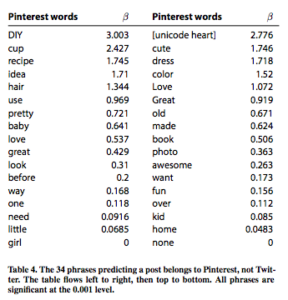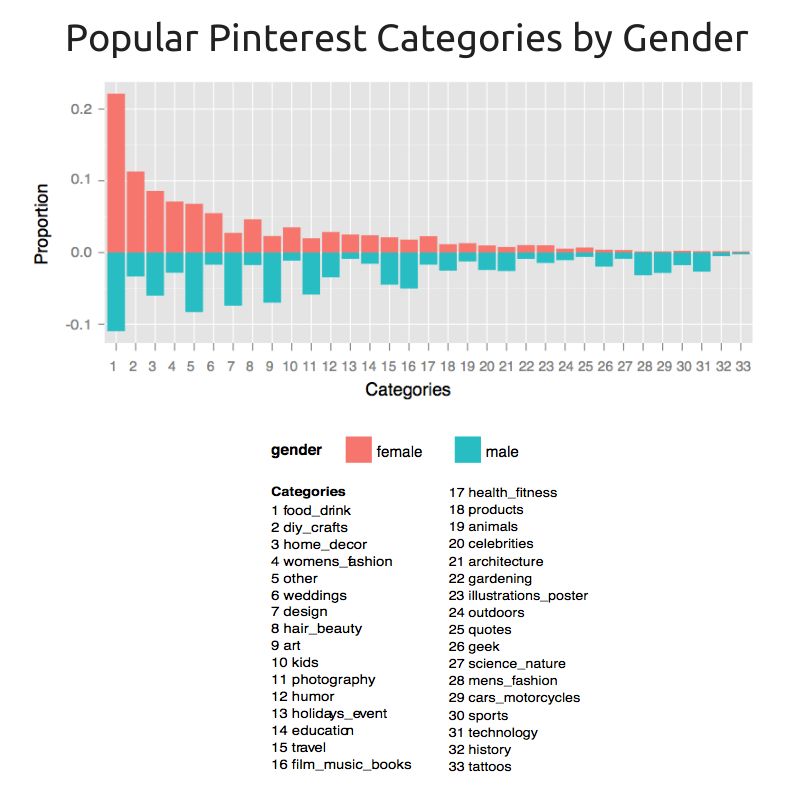Pinterest is marketing brilliance.
Pretend it’s 2009 and we want to market internet stuff to the billions of pairs of eyes on the internet. The only question is how. Early indications from websites like StumbleUpon, Facebook, and Reddit have shown that people like to spend hours of their free time cruising endless streams of content. The trick is to curate content that they want to cruise.
Enter Pinterest
Pinterest is a content board similar to Reddit or Instagram, but focused on lifestyle products and experiences – e.g. DIY arts & crafts, cool looking gear, interesting recipes, and travel destinations. User put together pinboards that are sorted into a number of categories. Instead of relying on the votes of others, Pinterest calculates what you might like based on the history of what you have liked in the past and the tendency for other users who like what you like to have also liked that pin. Their programmers continuously update the backend algorithms, with the most recent update in 2017.
It’s also a very advanced marketing operation. According to expandedramblings.com, which sells datasets on social media platforms, 85% of Pinterest users were female in 2014, and 42% of US Women had used Pinterest[1].
Gilbert et al. showed that the language used on the Pinterest website was typically associated with liking or wanting things, music to marketers’ ears[2]. The table below shows the results of a penalized logistic regression of the differences in phrase membership between Pinterest and Twitter. Higher Beta values indicate a high likelihood of presence on Pinterest, and all words are significant to the 0.001 level.

Note also that there appears to be a slight gender dependence on topics of interest, approximating an exponential distribution with categories like “hair” sticking out as less important to men:

The latter image is from a presentation by Terveen and supported by the Gilbert study[3].
Blogs like kissmetrics[4] help support SEO for small businesses to market to the billions of eyes that cruise Pinterest, and indicate that 500,000+ businesses have Pinterest accounts. According to Pinterest, 75% of content is generated by those business accounts[5]. That means that a majority of the content is advertising, with Pinterest doing the targeted marketing using their ML algorithms.
The situation is incredible for the businesses involved, and the users get content that they are interested in over a platform that focuses on continuous improvement.
Works Cited
[1] http://expandedramblings.com/index.php/pinterest-stats/
[2] Gilbert et al. “I Need to Try This!”: A Statistical Overview of Pinterest. 2014. https://comp.social.gatech.edu/papers/gilbert.chi13.pinterest.pdf
[3] https://isr.uci.edu/sites/isr.uci.edu/files/speakers/slides/Terveen-Apr-2014.pdf
[4] https://blog.kissmetrics.com/ultimate-pinterest-marketing-guide/
[5] https://business.pinterest.com/en

